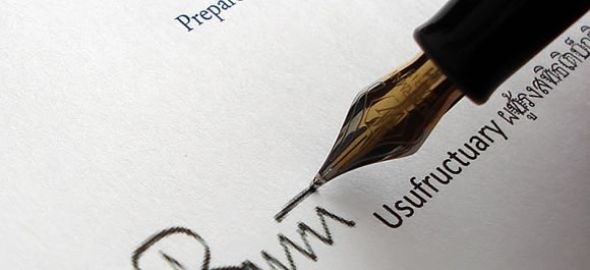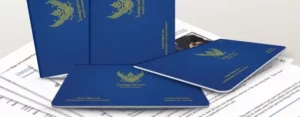Usufruct in Thailand. A usufruct (right to use and enjoy another’s property) is one of the principal “real rights” under Thai property law. It gives the usufructuary the possession, use, management and benefit (fruits/rent) of immovable property owned by someone else, while ownership (the “bare” or naked ownership) remains with the owner. Usufructs are governed by the Civil and Commercial Code (CCC) and are widely used in Thailand as an alternative to lease or superficies—notably in situations where foreigners cannot hold land in their own name.
Legal foundation and nature
The CCC codifies usufructs generally in Sections 1417–1428. The statute treats a usufruct as a property right that confers possession and the right to manage and exploit (including harvesting, renting or operating a business on) the encumbered immovable property, subject to limits intended to preserve the substance of the asset for the owner. The law also expressly contemplates special uses (for example, exploitation of forests, mines or quarries).
How a usufruct is created and registered
A usufruct is normally created by express agreement between owner and usufructuary and should be documented in writing. For enforceability against third parties and to secure priority, the right must be registered with the Land Department as a real right affecting the title. In practice, registration procedures and fees vary depending on whether the usufruct is granted for consideration; common practice is to register the right at the local land office with stamp duty and registration charges (the exact fee mechanics are set out in Land Department rules and standard conveyancing practice). Proper registration is a key protective step for both owner and usufructuary.
Term, termination and special limits
Usufructs can be created for:
-
a fixed term (contractual years), or
-
the life(s) of natural person(s).
If granted to a juristic person, Thai law places a statutory ceiling (commonly understood and applied in practice) on the maximum term—practitioners typically cite 30 years as the upper limit for juristic-person usufructs; for natural persons the term may run for life. Critically, a usufruct granted for a fixed period nevertheless terminates on the death of a natural-person usufructuary (if the contract made it dependent on the usufructuary’s life). On termination the usufructuary must return the property and is liable for damage beyond reasonable use.
Usufructuary rights and duties
The usufructuary enjoys broad rights to possess, use and derive benefit from the property (including renting the premises and keeping rents), and also has the right to manage the property. But these rights carry enforceable duties:
-
Preserve the substance: the usufructuary must keep the substance of the property unaltered and perform ordinary maintenance and “petty repairs.”
-
Major repairs: if significant preservation work is required, the usufructuary must notify the owner and allow the owner to perform it; if the owner defaults, the usufructuary may carry out necessary work at the owner’s expense.
-
Liability at termination: the usufructuary must return the property and compensate for any wrongful consumption or damage beyond reasonable use. These duties reduce the chance of destructive exploitation.
Transferability and assignment
Unless the creating instrument restricts transfer, the usufructuary may transfer the exercise of the usufruct to a third party (e.g., sub-letting or assigning the right to receive rents). Thai law makes it possible to assign or license the usufructuary’s operational rights, but such transfers do not convert the usufruct into ownership and generally remain subject to the contract’s restrictions and to formalities for Land Department notice. Some practitioners caution that practical enforceability of assignments depends on registration and clear drafting.
Foreigners and usufructs — practical significance
Because foreign nationals are largely prohibited from owning land in Thailand, usufructs are commonly used as a long-term possession vehicle: they can provide foreign residents or investors de facto long-term control and income rights without transferring title. Compared with leases, usufructs are treated as a property right (a real right) under the CCC and can offer stronger protection (subject to registration and careful drafting). In the commercial context, usufructs have gained traction for retirement arrangements, long-term occupancy of houses, and certain investment structures. Still, they cannot substitute for ownership: usufructs end as described under the law, and foreigners should account for inheritance and termination mechanics when planning.
Tax, fees and incidental obligations
The grant, transfer, or registration of a usufruct may attract stamp duty, specific registration fees and potential income or rental tax consequences for the usufructuary who receives benefits. Tax treatment depends on whether the usufruct is granted for consideration (a paid right) or gratuitously; parties routinely seek bespoke tax advice because the timing and structure of payments (lump-sum vs periodic) materially affect stamp duty and income tax positions.
Key drafting and risk-allocation points
-
Define scope of use: specify permitted businesses, subletting rules, and whether structural works are allowed.
-
Duration mechanics: expressly state whether the usufruct is for a term or for life and how death of a usufructuary affects remaining term.
-
Maintenance and capex: clearly allocate responsibility for ordinary vs major repairs, and any right to carry out and recover emergency works.
-
Compensation and restoration: set out valuation and restoration obligations for consumables and improvements.
-
Registration & priority: require immediate Land Department registration and specify who bears registration/stamp costs.
-
Exit mechanics: provide notice, inspection, handover standards and escrow or security to enforce post-termination obligations.
Practical examples (anonymized)
-
A foreign retiree obtained a life usufruct over a family home: the right provided lifetime occupation and rental flexibility; when the retiree died the property reverted to the owner’s heirs per the usufruct termination rules.
-
A developer granted a 20-year usufruct to an investor to operate a plantation; the usufruct allowed exploitation (harvesting) but required detailed restoration provisions because the activity altered the land’s substance.
Conclusion — when to use a usufruct
Usufructs are a powerful, statute-backed tool in Thailand for securing long-term use and income rights without transferring title. They are especially useful where ownership restrictions exist or where a property’s economic use must be separated from legal ownership. To obtain their full legal protection, a usufruct must be carefully drafted, registered at the Land Department, and paired with clear maintenance, transfer and termination clauses. For foreigners and sophisticated investors, a registered usufruct—used with tax planning and solid registration practice—can deliver near-ownership functionality while preserving statutory constraints and reversion protections.




